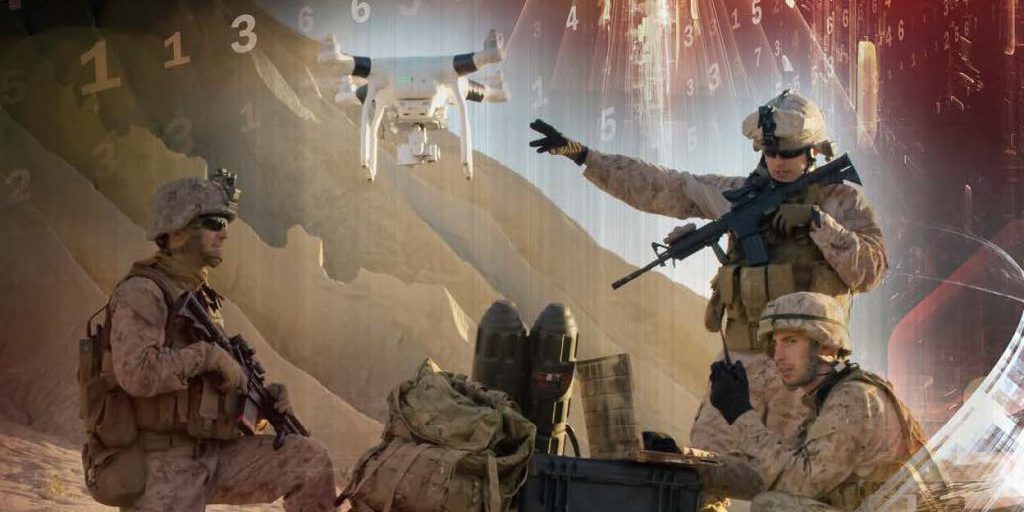It is our honor to introduce the Modeling and Simulation (M&S) “Serious Games to Enhance Defense Capabilities” Special Edition of the Journal which focuses on wargames and the many uses of M&S that support decision making needed at the various levels of combat.
The origins of board games can be traced back several millennia when the game of Go was invented in China as Wei-chi and is believed to be the oldest board game in continuous play to the present day. The modern game of Go was played by students of the military art during the last century for its parallel to the ink-spot strategy common to guerrilla warfare.
Over time various gaming tools have been used to support military commanders and staffs. The predecessor to today’s M&S environment was designed in the early 19th century. The wargame Kriegspiel was created in 1812 by Baron von Reisswitz and used for training the Prussian Army. Later, his son, LT Georg H.R.J. von Reisswitz developed a written set of rules for the game in 1824 which made for more consistent play and outcomes.
This year the editors have adopted the wider view of “gaming” by including what is commonly referred to as the oxymoron “Serious Games”. The term is used to identify games and game environments that are developed for purposes other than entertainment. While War Games are used to stimulate decision making in the conduct of military operations and planning, the primary focus of serious games is to support education and training.
The current Serious Games industry accounts for over 1.5 billion dollars in annual sales and is generally considered, using current technology, to have started with the issue of America’s Army in 2002. This is not to imply that 2002 is the beginning of serious games. In the well-researched article Origins of Serious Games (2011) the authors show origins of the term dating back to the Renaissance and specifically with the 1912 Swedish Novel, The Serious Game. The term, with a definition that closely matches the current use, is also the title of a 1970 book written by Dr. Clark Abt, Serious Games.
During his tenure as Chairman of Abt Associates (1965-1985), Dr. Abt developed numerous serious games for the military, government, industry, and education. Even though serious games has a long and interesting history, their use continues to grow and as technology evolves so do the capabilities and functionality of this learning environment and thus this issue of the CSIAC’s Journal of Cyber Security and Information Systems.
In this issue you will find a selection of topics ranging from the uses of serious games for education and training to use of early synthetic prototyping to construct a physics-based game environment for assessing how new technologies might be employed on the battlefield through the use of user/soldiers participating in games.
The first article describes a process to address the need for innovative, effective, and responsive cyber education and training programs. Learning Cyber Operations Through Gaming: An overview of current and up and coming gamified learning environments describes how a part of that strategy includes well designed games. The authors present how games and “gamified” learning environments can be used and provides overviews for four current and emerging programs.
The next two articles were presented at the 2016 NATO symposium (MSG-143) and are presented here to provide interesting insights into the design and use of games and gaming in military training. Authors from The Netherlands provide the article, Serious Gaming Design for Adaptability Training of Military Personnel, with the assumption that a serious game with complex tasks can be devised to enhance players’ flexible thinking and thus should improve their adaptability. They proceed to develop a complex decision-making game with the aim to enhance the cognitive flexibility of higher-level military officers. Also from the Netherlands, the next article, Crowd Driven Tactical Decision Game: Training Tactical Creativity, describes the results of a two year research project. The study was conducted to establish how the use of serious gaming can enhance the education and training of the individual staff officer at battalion and brigade levels.
The next article, Early Synthetic Prototyping – Digital Warfighting for Systems Engineering, is an effort to construct a physics-based game environment to rapidly assess how technologies might be employed on the battlefield. The ESP is envisioned to be a persistent game network that allows soldiers to play scenarios and provide experiential feedback to concept and capability developers. The first effort in the ESP is a small unit first person shooter game, Operation Overmatch.
From the early beginnings of gaming addressed above to today we can trace the logical extension from manual board wargames for military training and education to the application of serious games and gaming technologies to meet current requirements. Some feel games, in addition to training aspects, can provide valuable user/soldier insights to enable analysis and systems engineering decisions.

Early Kriegspiel set. Source: Marz, Roman, Photo credits, Berlin, Germany, 2000.

Massive Multiplayer Online Wargame Leveraging the Internet (MMOWGLI) program. Retrieved from: https://www.imagesoffreedom.com/


